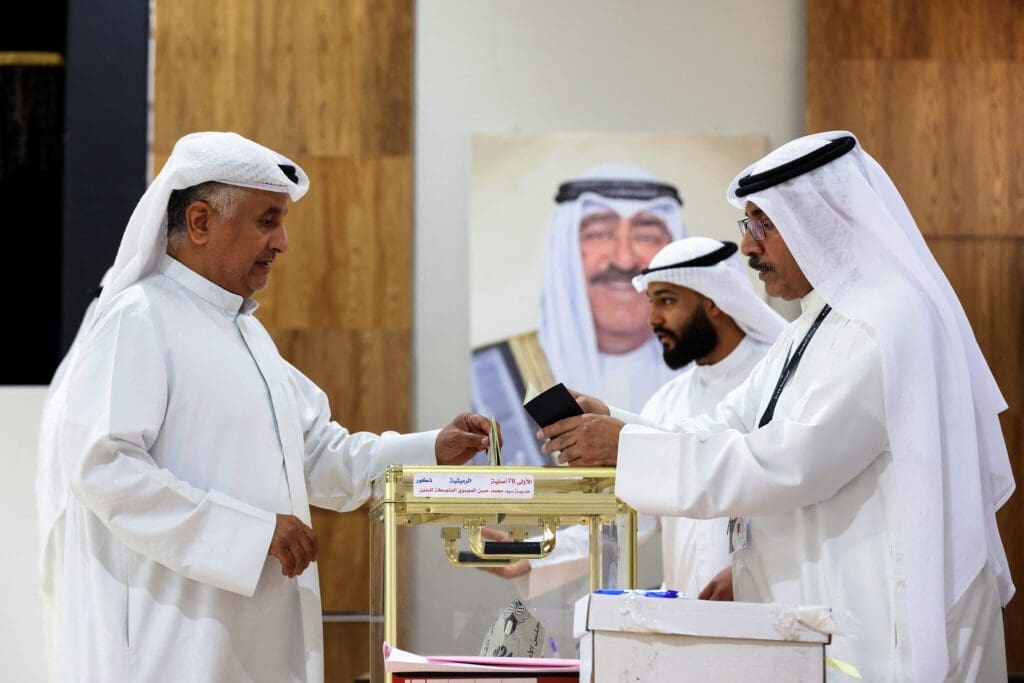1. Kuwait has faced political gridlock, resulting in four elections over the past four years and deteriorating social services. In this month’s parliamentary elections, the opposition maintained a 29-seat majority in the 50-member body, closely resembling the previous year’s outcome. What do these results indicate for Kuwait’s political landscape and potential reforms?
Hope springs eternal, but political reality always has a way of asserting itself. Like many countries, Kuwait has recently been confronting serious political gridlock. Opposing political forces appear to be finely balanced, and a decisive majority or broader social consensus on the way forward has yet to emerge. The parliament that resulted from the April 4 election will look a lot like the parliament that was dissolved in February 2024. All but 11 of the 50 members up for election will be returned to the legislature, and some of the “new faces” were previously in parliament. As you noted, the opposition has retained its majority of 29 seats. There have been some modest changes in composition—Shia Muslims have picked up an additional seat, for example. But none of the fundamental political issues or cleavages have been resolved. As prominent Kuwaiti political analyst Bader Al-Saif stated, a new showdown may even be in the making, as some of the new faces are “quite outspoken.”
2. Days before the election, Kuwait’s new Emir Meshal Al Ahmed Al Jaber Al Sabah urged citizens to vote amid fears of boycotts and low turnout. Were these fears realized, and what impact did the recent change in leadership have on the elections?
The turnout was around 62%—up from around 50% in both 2022 and 2023, but not wildly divergent from either of these earlier elections. The good news is that the feared political exhaustion and malaise have not set in, and Kuwaitis voted in comparable numbers to recent years. The new Emir’s exhortation to the citizenry to vote did not significantly drive up the turnout, but it may have prevented further deterioration in the numbers heading to the polls.
3. Kuwait’s welfare system and potential private debt forgiveness have been key topics of debate in the country. To what extent do the results align with populist sentiments on these issues? Where do the new parliamentarians stand, and what will be on their agenda in the coming months?
For reformers, the results are likely to prove a disappointment. In spite of a new Emir encouraging constructive change and a new and dynamic prime minister, the dysfunctional status quo is likely to continue. Despite its oil wealth, Kuwait is at risk of slipping into a structural deficit unless difficult decisions are taken, and the country is facing significant demographic challenges over the next decade that will only exacerbate these problems. Kuwait desperately needs to pass a debt law that will allow the government to borrow on international markets. (Its previous legislation expired in 2017, and Kuwait currently has one of the lowest debt-to-GDP ratios in the world.) The rapid growth of the wage bill well above rates of inflation will need to be curtailed by establishing an independent salaries commission. Yet, this is unlikely to happen. Instead, parliament will continue to push populist measures, such as debt relief for the citizenry, that are both unnecessary and create problems of moral hazard.
Yet as with political reality, fiscal reality also has a way of asserting itself—sometimes in ways that can be even more compelling. Kuwait’s increasingly strained fiscal position will eventually require action, probably sooner rather than later. One hopes that, with the Emir’s encouragement and under the capable leadership of Prime Minister Sheikh Mohammed Sabah al-Salem al-Sabah, Kuwait will be able to resist destructive populist impulses and ultimately build a virtuous circle of reforms that will help the country realize the ambitious goals of Vision 2035.


